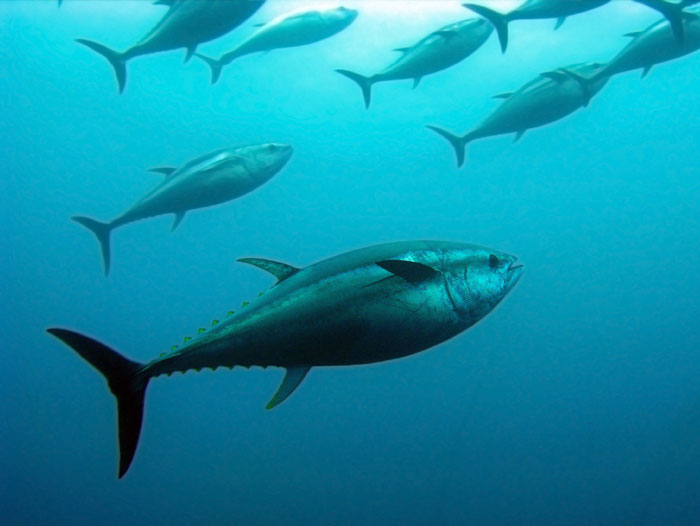Mediterranean Bluefin Tuna Fishery Now MSC Certified
October 30, 2020 | 3 min to read

A small-scale, artisanal fishery based in the South of France has achieved certification to the global standard for sustainable fishing set by the Marine Stewardship Council (MSC). The fishery, which uses pole and line, handline and longline fishing gear, is only the second fishery in the Mediterranean Sea to demonstrate its commitment to sustainability by achieving MSC certification.
The independent assessor, Control Union UK, took two years to assess if the French Mediterranean Bluefin tuna artisanal longline and handline fishery, a member of the SATHOAN fishermen’s cooperative, met the science-based sustainability standard for wild-caught fish. To be MSC certified, a fishery must show the fish stock is healthy, that it minimises its impact on the environment and has effective management in place.
The fishery catches around 200 to 300 tonnes of Eastern Atlantic bluefin tuna each year, which is mainly destined for local consumers in France.
The assessment process identified some goals for improvements the fishery must meet within the next five years, such as putting in place a strategy for managing any impacts on other species. It will have annual surveillance checks to ensure it is meeting those goals and maintaining its responsible fishing practices, and will be reassessed after five years.
The assessor’s recommendation for the MSC to certify the fishery is informed by the latest scientific advice, with contributions from marine scientists, NGOs including WWF and Pew Charitable Trusts as well as SATHOAN’s management. It also took into account a formal process resolving concerns raised by NGOs about the extent of the recovery of the Eastern Atlantic bluefin tuna stocks.
The Eastern Atlantic bluefin tuna stock, which spawns in the Mediterranean Sea, was on the verge of collapse less than two decades ago due to overfishing, but has been subject to concerted conservation efforts for the past 20 years. While fishing never stopped, with allowable catch remaining in the thousands of tonnes, stringent management has led to a significant recovery in numbers in the past decade.
Managing Director of SATHOAN, Bertrand Wendling said: “The SATHOAN fishermen know that their profession has huge responsibility in protecting the oceans and marine resources, particularly where certain populations were historically very weakened by overfishing, including bluefin tuna in the Mediterranean. It was important for them to go further than the regulations in force and ensure activities are sustainable and respectful of ecosystems by working towards MSC certification in the interest of a preserved planet.”
Senior Fisheries Manager at the Marine Stewardship Council France, Margaux Favret said: “The sustainable practices of SATHOAN’s small-scale bluefin tuna fishery in the Mediterranean are a real sign of hope for the preservation of the oceans. Collaborative efforts from the fishery, NGOs, scientists and fishing organisations have helped recover the bluefin tuna population, showing that collective action can make a difference to turn an overfished stock into a sustainable catch. When we know that 80% of the fish populations measured in the Mediterranean are overexploited, it is urgent to act.
Earlier this year, the family-owned Usufuku Honten fishery became the first bluefin tuna fishery to be MSC certified, catching 55 tonnes in the Atlantic, 0.2% of the total allowable catch set by the international body which governs Atlantic tuna fishing (ICCAT). The Japanese longline fishery’s assessment involved a six-month formal process resolving concerns raised by WWF International and The Pew Charitable Trusts. Both the Usufuku Honten and the SATHOAN small scale fishery entered assessment in 2018 and are the only bluefin tuna fisheries to have asked to go through MSC assessment to date.
